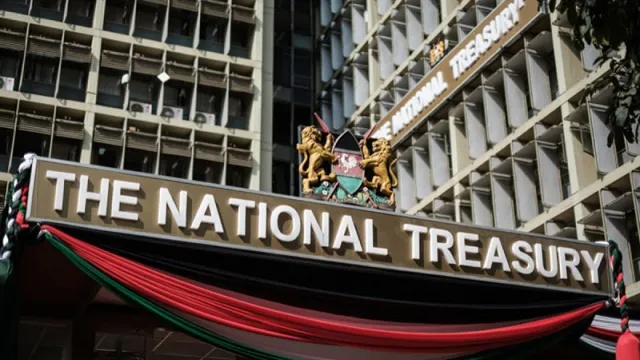World Bank’s Sh156Bn loan to ease fiscal pressures

World Bank’s Sh156Bn loan to ease fiscal pressures
The World Bank has approved a Kes156 billion (US$1.2 billion) loan to help address Kenya’s fiscal pressures while fostering long-term green and inclusive growth in the country. The funding comprises an $850 million loan from the International Bank for Reconstruction and Development, a $300 million International Development Association credit, and a $50 million IDA grant from the Window for Host Communities and Refugees.
This financing, under the Kenya Fiscal Sustainability and Resilient Growth Development Policy Operation (DPO), is the first of three planned operations, emerging in an improved macroeconomic environment, the multilateral lender said.
Funding follows Kenya’s initiatives to tackle tight liquidity, depressed investor confidence, and limited capital inflows which have led to a rapidly depreciating shilling last year.
“The policy dialogue around this DPO has helped to strengthen the macroeconomic framework sustain an ambitious fiscal consolidation path and tighten monetary policy,” said Keith Hansen, World Bank Country Director for Kenya.
“After tackling the immediate fiscal pressures, the focus can now shift to addressing the country’s longer-term challenges.”
According to the World Bank, the loan will support policy and institutional reforms aimed at several areas such as public finance management where it will help in assessing structural constraints, alleviating fiscal pressures, and promoting a sustainable budget through the setup of a Treasury Single Account and wage bill consolidation.
Read also: World Bank injects Sh580 million for slum upgrades in Nakuru
Market reforms
The financing will also champion market reforms to foster competitive and inclusive product and labour markets by removing county-level licensing distortions and opening the country’s ICT sector to more foreign investments.
Additionally, the financing will go to strengthening climate initiatives by supporting green public transport, increasing forest cover, and leveraging climate finance through carbon credits and green bonds.
“For Kenya to return to moderate risk of debt distress, the government will need to maintain the fiscal consolidation path, promote export growth, enhance the country’s policy and institutional assessment to increase its debt-carrying capacity, and proactively manage liabilities by focusing on concessional financing to reduce interest costs and repayment pressures,” noted Naomi Mathenge, the World Bank Senior Economist for Kenya.
The climate-focused agenda within the DPO aligns with the 2023 Nairobi Declaration on Climate Change, enhancing adaptation through improved social protection systems and public services, and providing jobs for Kenya’s 550,000 refugees. It also supports Kenya’s ambition to lead globally in climate action while tapping into green financial resources.
World Bank said this initiative is part of the broader plans outlined under President William Ruto’s Bottom-up Economic Transformation Agenda and the World Bank’s FY23-FY28 Country Partnership Framework for Kenya.



